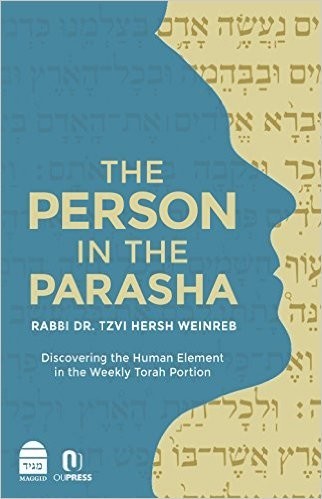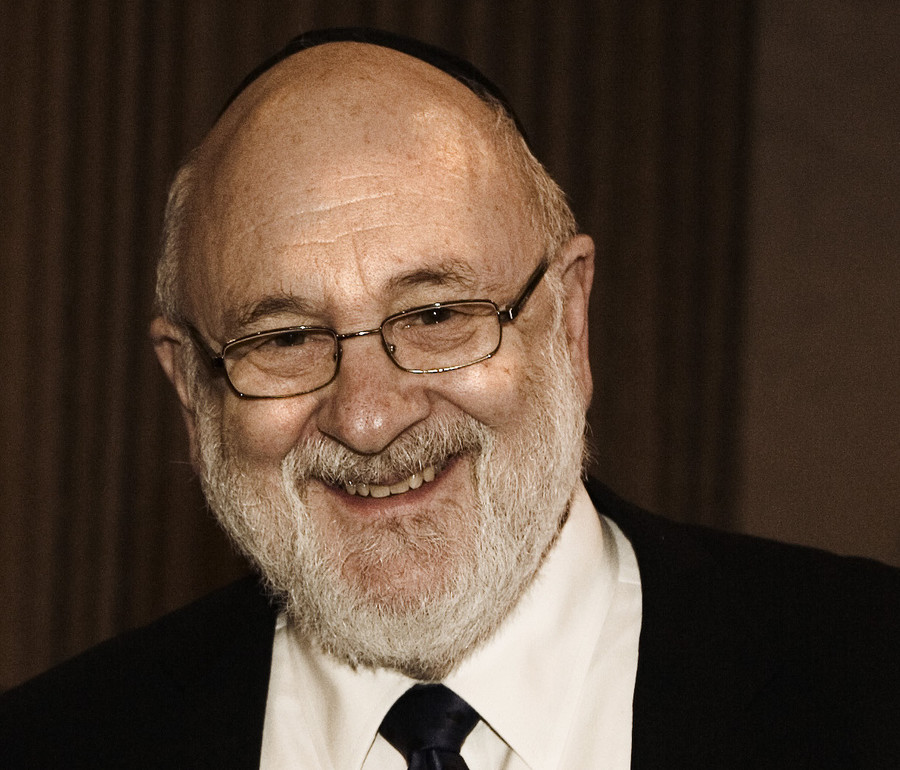Lessons from legacies of Noach and Avraham
This week’s literary choice is “The Person in the Parasha: Discovering the Human Element in the Weekly Torah Portion” by Rabbi Dr. Tzvi Hersh Weinreb (OU Press, Maggid, 2016).
The unique feature of this work is that it focuses on the actions, reactions and behavior of the leading biblical personalities featured therein. Thus, this week’s essay will directly focus on Rabbi Weinreb’s take on two personalities from the two upcoming Torah portions, Noach and Avraham.
Rabbi Weinreb received semicha from the Rabbi Jacob Joseph Yeshiva and holds a Ph.D in clinical psychology from the University of Maryland.
The first episode that I wish to bring to you attention is that of the yetzer horah that enveloped Noach after the flood, that being the episode of drunkenness that he experienced.
“Noach and his family are beginning anew, rebuilding their lives, and rebuilding the world. What is the first thing Noach does? He plants a vineyard. His grapes grow and ripen, he makes wine and drinks it, and he gets drunk.
“What prompted Noach to make wine his first priority? Let me suggest the following imaginary scenario to answer that question. Noach walked with G-d. He enjoyed the sense of spirituality for which many of us yearn. He experienced a spiritual ‘high.’ In the past, he achieved that level of spirituality by virtue of hard work: obedience, construction of the Ark, gathering the animals of the world, tending to them, and offering sacrifices.
Along came Noach’s yetzer-force, and said, ‘Noach! There must be an easier way! You can achieve the same spiritual high, the same sense of wholeness and holiness, without all the work. All it will take is a few drinks of one of G-d’s own juices. Plant a vineyard, make some wine, drink it, and you will feel all the good feelings you felt before, and then some.’ For, you see, the yetzer, or if you wish, the devil, knows of the connection between addiction and spirituality.”
Rabbi Weinreb links this teaching with his own experience with many gifted spiritual seekers who resorted to alcohol and more potent drugs for their spiritual enhancement. Their tale is indeed sad, and there is much for us to learn from this.
The next biblical figure, Avraham, presents to us a truly fascinating contrast. While the Bible teaches us that Noach walked with G-d, Avraham walked before G-d. This word contrast, according to Rabbi Weinreb, teaches vital lessons in both human behavior and communal leadership.
Avraham “stepped out on his own and risked acting independently and creatively. He was confident of his religious judgment and did not require G-d’s prior approval for all of his actions. Indeed, he dared to challenge G-d’s own judgment.
“Thus, we never find Noach speaking out in defense of his generation, nor does he pray for their salvation. Abraham on the contrary, forcefully defends sinful Sodom and Gomorrah and even prays for his adversaries.”
Rabbi Weinreb concludes his teaching on this Torah segment with the following teachings citing Rav Avraham Isaac Kook that demonstrates his preference for the creative genius over the conformist:
“Rav Kook once had to decide a halachic issue by resolving a disagreement between two great Talmudic authorities. The dispute was between the author of Darkei Teshuva, and the Maharsham. … He decided in favor of the Maharsham over the Darkei Teshuva. He argued that whereas the later was a gaon me’asek, a genius at recording the opinions of others, the former was a gaon yotzer, an inventive genius. The creative authority trumped the expert anthologist.”
This observation further reinforces Rabbi Weinreb’s impressions of Noach and Avraham. Please read on this one last teaching:
“The realization that there is a place for creativity in the worship of the Almighty is especially essential for those who are responsible for the curricula of our educational institutions. They must be on guard never to stifle the wonderful creative impulses that typify youth. They must cultivate those impulses and allow for their expression within our tradition. And we must allow for the development of contemporary Avrahams and not be satisfied to raise a generation of mere Noachs.”
FOR YOUR FURTHER READING PLEASURE
Another new work was published dealing with a commentary on the book of Bereishis, by Yanki Tauber, based upon the works of the Lubavitcher Rebbe, entitled, “The Inside Story.” The author’s rich and fluid style presents a very comfortable and lucid take on the weekly parasha. I look forward to the other volumes in this series.
Contact Alan Jay Gerber Columnist@TheJewishStar.com

 63.0°,
A Few Clouds and Breezy
63.0°,
A Few Clouds and Breezy 







